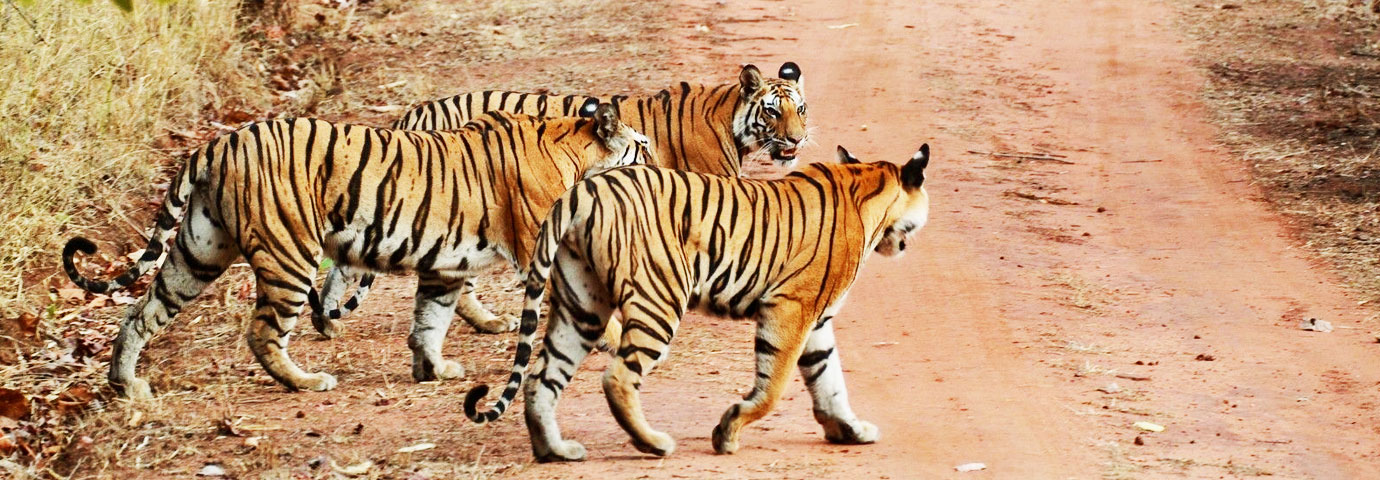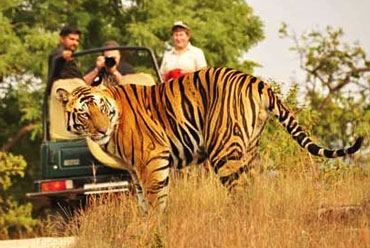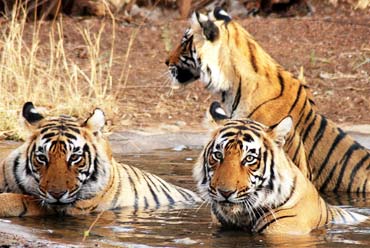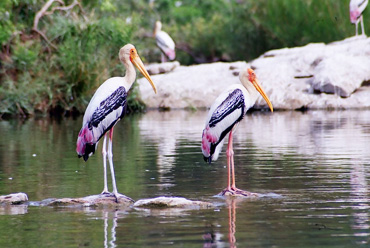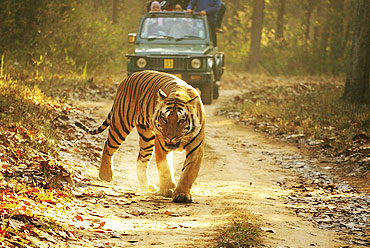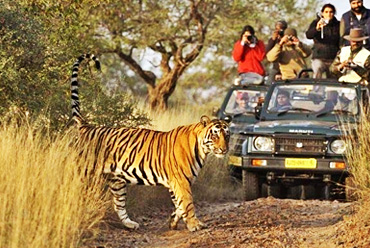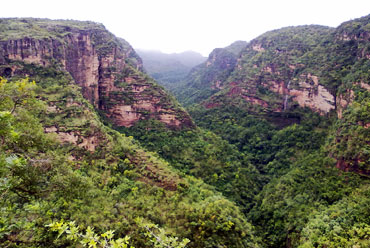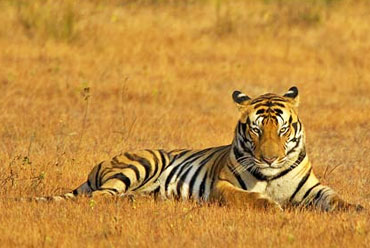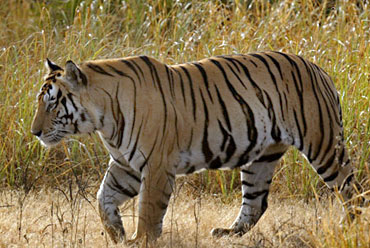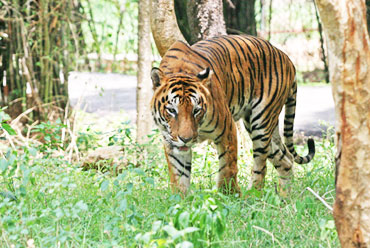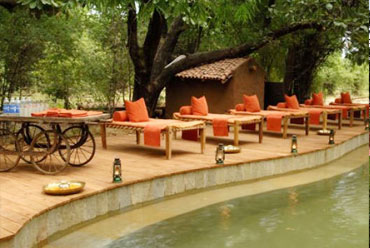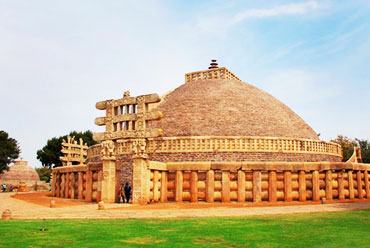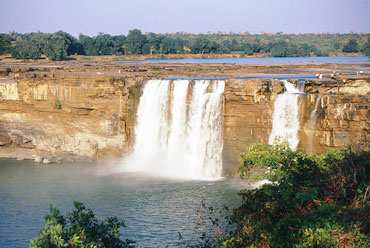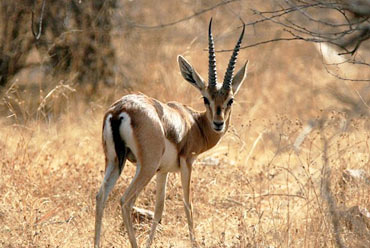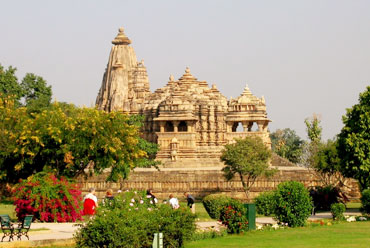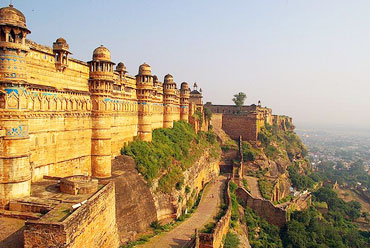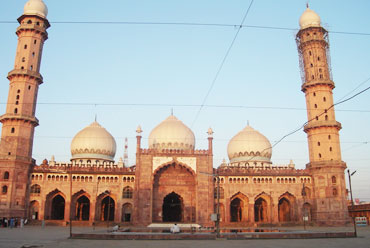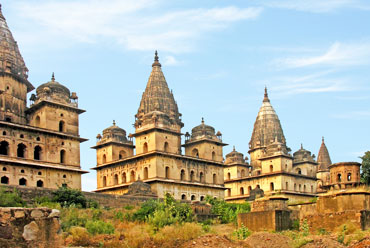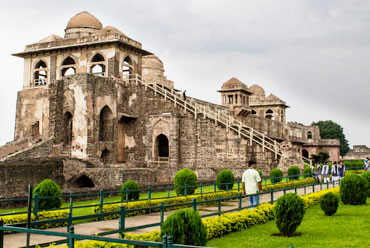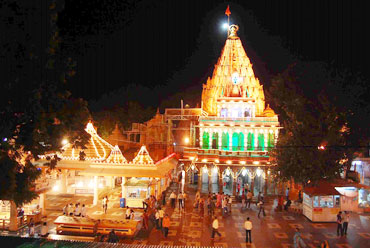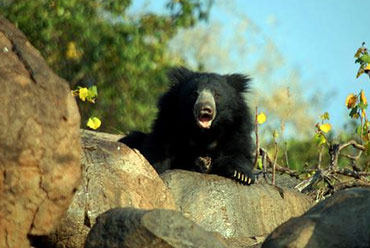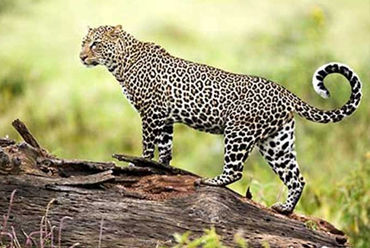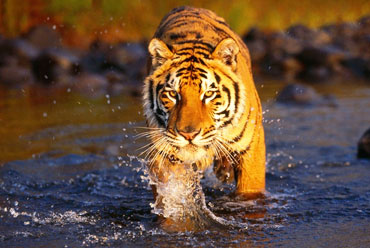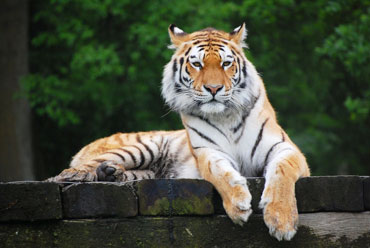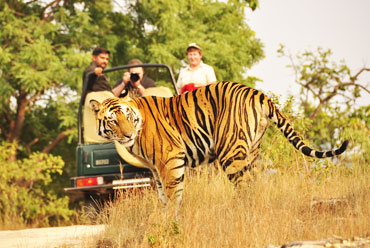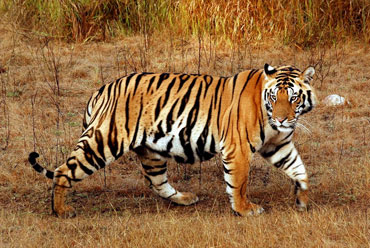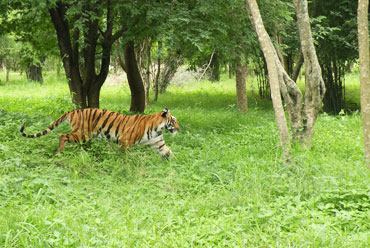Fast Facts
|
Area |
450 sq. km (Core area: 105 sq. km) |
|
Altitude |
800 m above sea level |
|
Temperature range |
42°C to 2°C |
|
Best time to visit |
February-June (Closed 1 July-31 October) |
|
STD Code |
07653 |
Bandhavgarh National Park is located around 195 km off Jabalpur and 210 km off Khajuraho in Madhya Pradesh. Considered as the crown in the wildlife heritage of Madhya Pradesh, Bandhavgarh is known for the Royal Bengal Tigers, cheetals, leopard, gaur, sambhar, and many more faunal species. Bandhavgarh National Park is nestled in the Vindhya mountain range of Central India full of hills and reverines. Though, very small in comparison to Kanha or other parks of Madhya Pradesh, the park hosts almost the same number of tigers or any other wildlife animal. Apart from tigers and leopards, Bandhavgarh is also extremely productive for medium-sized bison herds.
Bandhavgarh came into existence as a national park in 1968 with a core area of 105 sq. km, which was later extended to include two adjoining sal forests in 1986. Before becoming a national park, it was the game reserve of the Maharajas of Rewa. But due to loss of royal patronage, it remained neglected for a long time until the government declared it a national park to control rampant poaching in the area.
Location
Bandhavgarh National Park is located in the Umaria district in the state of Madhya Pradesh.
Best Time To Visit
Summers start here in April and continues till June. The temperature touches the high of around 42°C. But these are also the months when you can look forward to sighting tigers and leopard. December to February is the best months climate wise, while the weather is cool and pleasant. The park is closed during the monsoon season, which also coincides with the breeding season, from June till November. Another reason for closure during this season is the torrential rainfall washing away most of the jungle tracks.
Tourists Attractions
Bandhavgarh National Park - Flora and Fauna
At Bandhavgarh you can find moist deciduous forest, as at Kanha National Park. At higher altitudes, the flora tends to move towards mixed forests. With the highest density of tigers, Bandhavgarh is one of the most important wildlife sanctuaries in India for the wildlife preservers and enthusiasts. The park is also home of the white (albino) tiger. There are a number of other rare species moving around in Bandhavgarh National Park like sloth bear, gaur, sambar, chital, muntjac, nilgai, chinkara, and wild pigs. There are also interesting cave shrines scattered around the park, with Brahmi inscriptions dating from the first century B.C. You can visit the remains of the Bandhavgarh Fort believed to be 2,000 years old.
Bandhavgarh Fort
Built by the Maharajas of Rewa, Bandhavgarh Fort is located well within the Bandhavgarh National Park. The fort is situated at an altitude of 800 m and gives panoramic view of the wildlife preserve as well as surrounding countryside. There is a small stream call Charganga that flows besides the fort. In the way to the fort you can also see a number of statues and temples, the most famous of all is a rock-cut statue of Lord Vishnu.
Places Around Bandhavgarh
There are very few places around Bandhavgarh that offer much in the way of excursion. Katani and Umaria are two important urban habitations around Bandhavgarh National Park. Major tourist attractions in the region include world-famous temples of Khajuraho, Jabalpur - a major business center of Madhya Pradesh and Bheraghat on the river Narmada. Tourism-of-India.com provides complete information on tourism in Bandhavgarh National Park. Tourism-of-India.com offers package tours in order to make your visit to Bandhavgarh National Park Pleasant.
How To Reach
By Road - Bandhavgarh is located equidistance from the city of Jabalpur and world famous tourist spot of Khajuraho. You can reach Bandhavgarh by using roads from both these places.
By Rail - Katni at a distance of 120 km on the South-Eastern Railways is the ideal railway connection for reaching Bandhavgarh.

